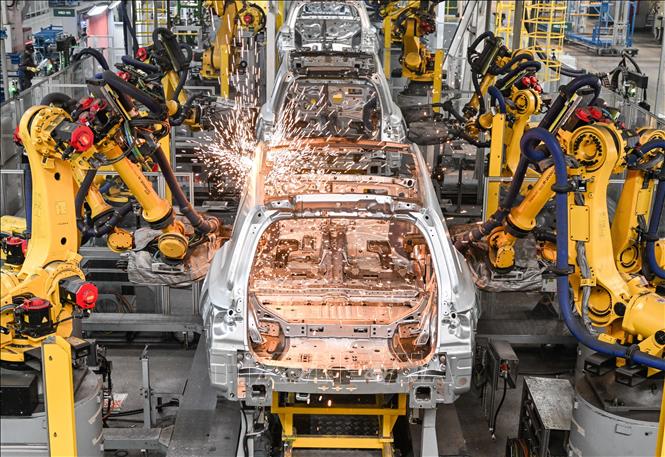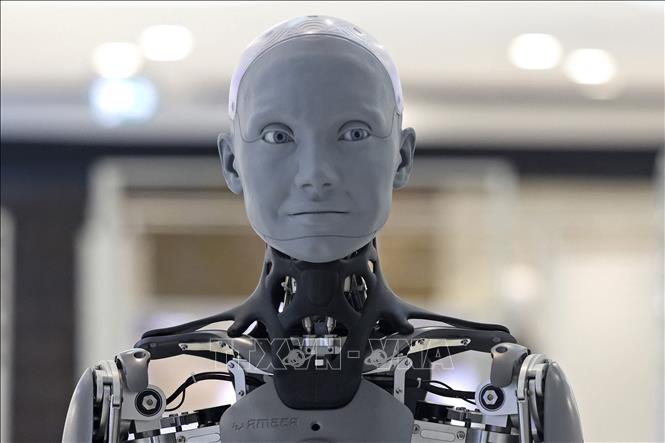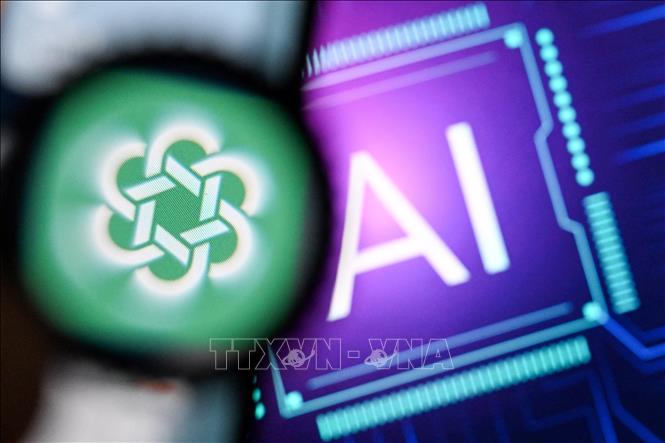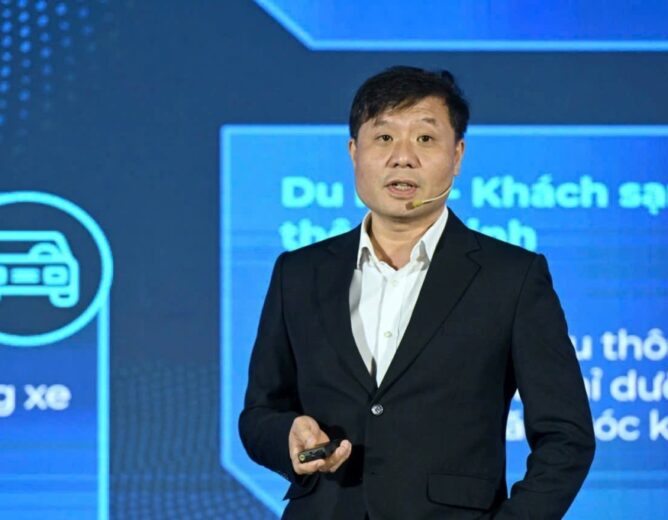The explosive development of artificial intelligence (AI) technology in recent years has brought many changes to the labor market.
AI has helped improve productivity and work efficiency, becoming a powerful “assistant” for workers in many stages, while creating many new job opportunities, but also comes with risks. In particular, after the appearance of the famous ChatGPT chatbot, there are increasing concerns that generative AI technology can “take away” jobs from humans.
Speaking to a VNA reporter in Sydney, Dr. Nguyen Tuan Nghia, an AI expert who taught at UTS University (Australia), commented that AI can be more effective than humans in some specific fields, especially those that require processing large amounts of data, fast calculations with high accuracy, such as data analysis, machine control in production and information system management.
In manufacturing, logistics and service industries, AI and robots have replaced humans in repetitive, cyclical activities accurately and efficiently, helping to reduce risks and increase productivity. With the ability to automate the process of collecting and analyzing big data, AI can also replace traditional data analysts in the fields of finance and marketing. In addition, chatbots that automatically handle customer requests and queries will reduce the need for human resources for direct customer service.
However, Dr. Nguyen Tuan Nghia affirmed that AI can hardly replace some human skills, especially those related to interaction and emotions. Creativity and innovation are also limitations of AI. More importantly, AI is not able to fully understand and handle illogical factors related to human cognition, cultural, social or ethical context. A study by the International Labor Organization (ILO) conducted globally also shows that the biggest impact of AI may be potential changes to the quality of work, especially work intensity and autonomy, rather than taking over completely, “erasing” the role of workers, because most jobs and occupations are only partially exposed to automation. Low-skilled jobs are at the highest risk of falling into the hands of AI, but over time, AI will gradually have a positive impact, creating about 69 million jobs by 2027, as predicted by the World Economic Forum (WEF). AI is opening up job opportunities in fields that require specialization and high skills such as data analysis, cybersecurity and software development. In addition, the more the AI industry develops, the more experts, data scientists, software engineers, researchers and AI managers are needed. AI’s support, such as the ability to automate manual tasks, collect and synthesize data, will also free up workers for creative activities.
“The overall picture will bring more positives than negatives, with the main benefits being more jobs created in areas such as education and agriculture,” predicted WEF Managing Director Saadia Zahidi, affirming that “AI will bring a lot of opportunities for expansion and growth.” Moreover, AI can also become a catalyst for creating new industries, stimulating economic growth.
According to ILO data, automation technology is likely to affect 5.5% of total employment in high-income countries, while in low-income countries, this figure is only around 0.4%. On the other hand, the potential for AI technology to increase is almost equal across countries. This means that, if the right policies are applied, this new wave of technological transformation can bring important benefits to developing countries.
Compared to rich countries, developing countries are considered to be more open and responsive to the application of AI in all areas of life. However, the majority of jobs that apply or are related to AI are low-level jobs, have few opportunities for advancement and are often not related to the qualifications of workers. For example, many Western companies have shifted unskilled jobs such as technical services and customer support to developing countries such as India, the Philippines, Ghana, Uganda, Nigeria and Brazil to save on operating costs. While these jobs have created millions of new jobs, they have done little to equip workers with the skills to take full advantage of technology.
To minimize the negative impacts and take advantage of opportunities from AI, Dr. Nguyen Tuan Nghia believes that there needs to be strong policies in updating education programs, enhancing new skills training and supporting lifelong learning. Governments and organizations need to support and retrain workers, especially those in middle age and older, to help them adapt to new technologies and transition to higher-demand occupations. Workers themselves need to equip themselves with a diverse set of skills, from technical skills, including programming thinking, knowledge of machine learning and deep learning… to soft skills, management skills, and most importantly, ethical awareness to ensure responsible use of technology.
Sharing the same view, in an interview with VNA reporters in Geneva, ILO senior researcher Paweł Gmyrek affirmed that workers need to be trained in digital transformation skills. He stated: “The historical reality from previous technological transformations shows that the participation of workers in the process of technological development can bring very positive results. In terms of productivity, the companies that have emerged from the digital transformation process with higher productivity are those where technology is not imposed but designed in sync with the workforce.”
Clearly, the socio-economic impacts of generative AI will depend largely on how governments manage the spread of this technology. Countries need to develop policies that support an orderly, equitable and consultative transition. Getting policy right will significantly determine a society’s ability to maximize the benefits of AI while minimizing the risks of high unemployment. According to IMF Managing Director Kristalina Georgieva, “investments in digital infrastructure and skills, as well as strong social safety nets, will determine the pace of AI adoption and its impact on labor productivity.” Overall, the development of AI will continue to bring both challenges and opportunities. It is important that individuals and communities are prepared and educated to adapt to these changes, ensuring that their jobs not only survive but thrive in the age of AI.








